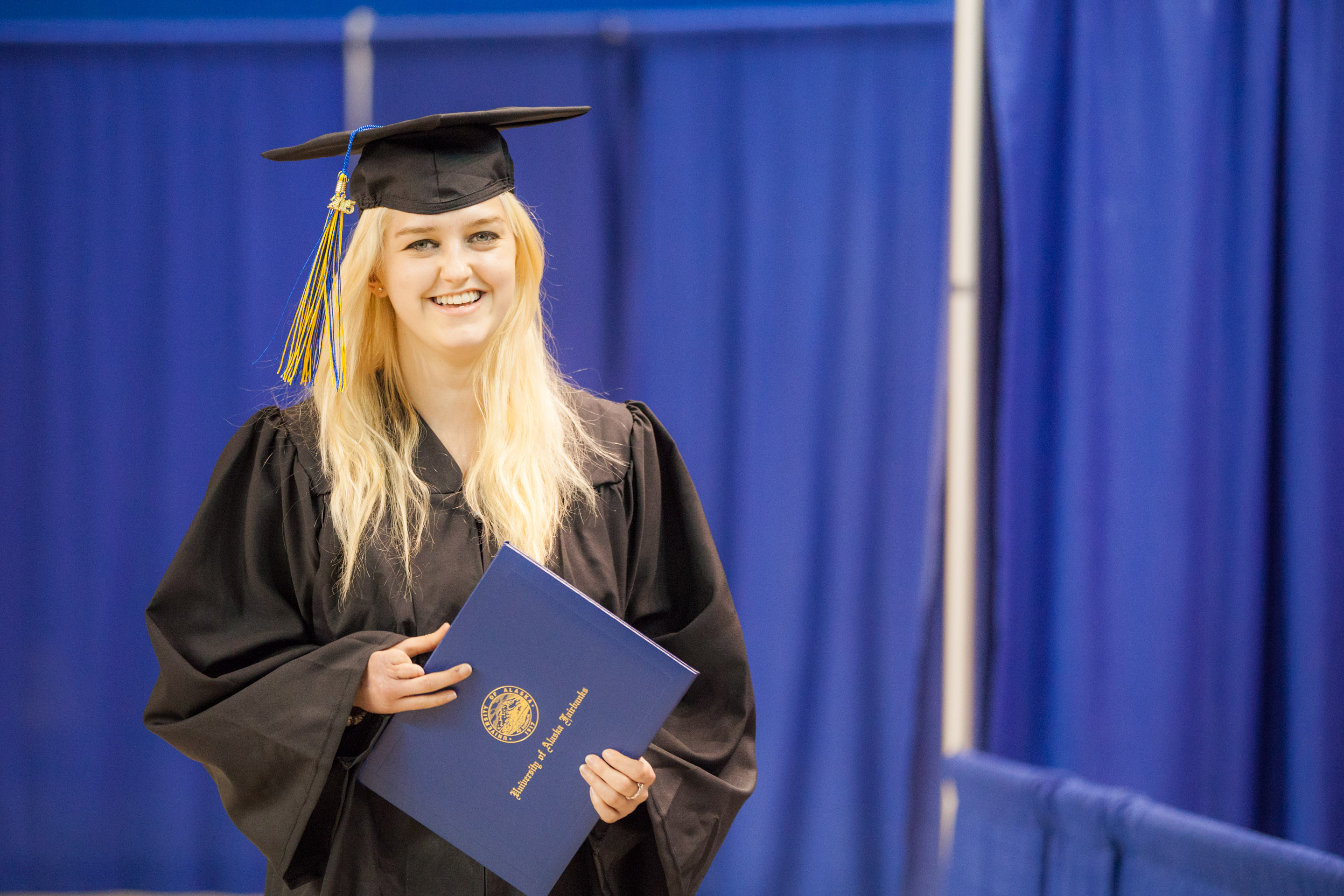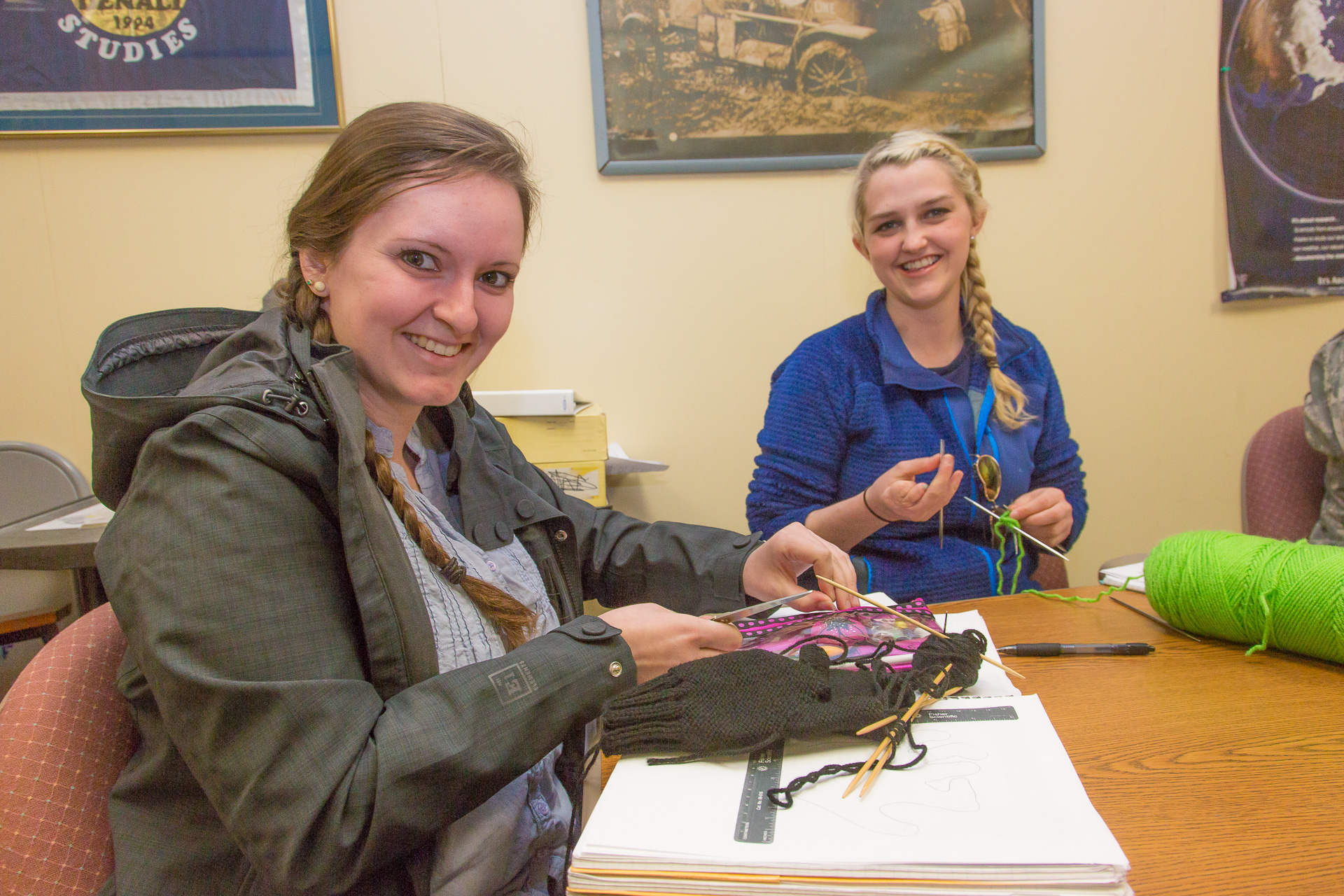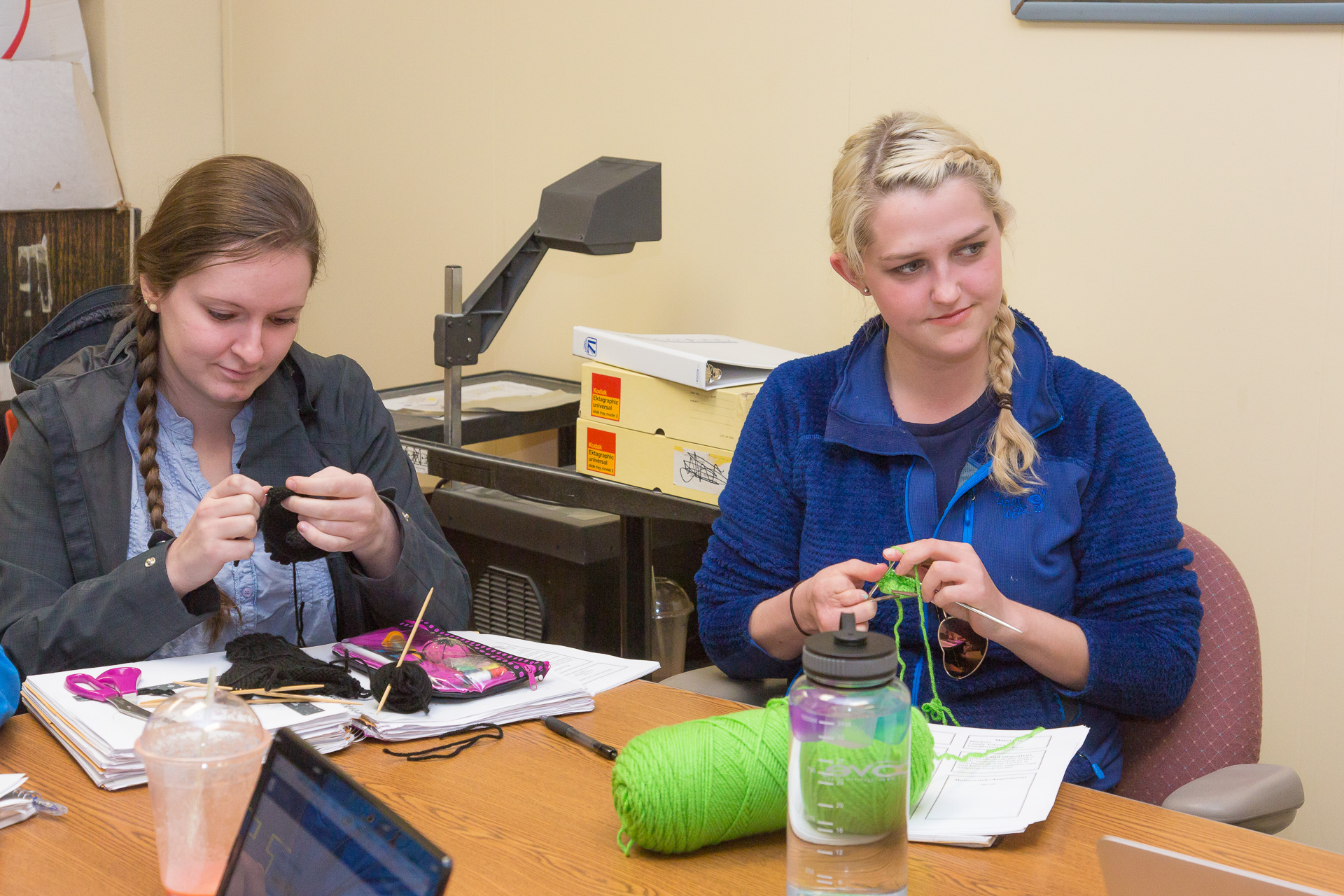Knitting one-of-a-kind gloves warms the hands and the heart

Michelle Strehl didn’t wait long for her first customer. While on winter break in 2013, the UAF student decided to knit gloves for people like herself whose hands have unique shapes.
Three days later, she met a bank manager while visiting family in Oregon.
“I shake his hand and he turns it over and he’s like, ‘Oh, it looks like we have something in common.’ It was the same two fingers that I have trouble on. So I made him a pair of gloves,” she recalled. “He was my first customer, and then it just sort of grew from there.”
Strehl, who graduated with a degree in foreign languages in May 2015, created Mitts That Fit as a start-up business. She and other knitters have produced more than 50 pairs of customized gloves, and she has plans now to reorganize and greatly expand the enterprise as a nonprofit corporation.
“I think it could be a lot bigger than it is now,” she said during an interview in April.
Strehl credits her uncle, Michael Kelly, for the idea. She was knitting her first-ever pair of gloves two years ago when her uncle made a blunt observation.
“I was knitting two extra fingers that I didn’t need and he was like, ‘Why?’” Strehl said.
A few weeks later, Strehl finished her first customized gloves without the two fingers. She was ecstatic. “‘Oh my gosh, these are so cool,’’’ she remembered thinking. “I can do things without these extra fingers flopping around.”

Kelly suggested she knit more for other people.
“I was like, ‘Yes, that would be so much fun,’” she said.
An accident when Strehl was 4 years old reshaped her right hand and took the two larger fingers.
Her father ran an arcade business and had a pickup with a lift gate to move the game machines.
“I was standing there with my hands in my pockets riding up with a game so we could push it into the back of the truck, and my jacket caught and got pulled into the gears,” Strehl said. “People say you forget those horrific times. I remember every second.”
While she hated the physical and mental trials that the injury created for her and her family, today she believes they made her a more compassionate person and a harder worker.
Now that Strehl has graduated from UAF, she plans to put those talents to work in her new business. She is working at the Fairbanks Princess Riverside Lodge this summer and expects to have more time for Mitts That Fit in the fall. Conveniently, that’s when demand for gloves increases.
Strehl’s longtime friend, Claire Ashmead, will continue to work with her. Ashmead also graduated from UAF with a foreign languages degree in May and has moved to Colorado Springs, Colorado.
“It’s mostly done electronically,” Ashmead said of communications with customers and between knitters, “so being in the same place is not a requirement at all.”
Strehl and Ashmead met as children in Fairbanks through a network of people involved with teaching in the Waldorf School’s style. The method emphasizes working with one’s hands, so the curriculum in first grade introduces knitting.
Producing a custom glove for a person with a unique hand who lives on the other side of the Earth requires an ability to see and create unusual, three-dimensional shapes, Strehl and Ashmead said. Orders to Mitts That Fit come with photographs, drawings and sometimes long written descriptions.
“You have to be able to see this and knit something from it. We’re not going to be able to give you ‘knit three, pearl three.’ There’s really no pattern that we can actually follow,” Strehl said.
“That’s the whole point,” Ashmead added.

While knitting a recent pair of gloves, Ashmead said, “I had to just kind of try something and was like, ‘That doesn’t work,’ so I’d take it out and try it again.”
“It can get really frustrating like that,” Strehl added.
The rewards justify the frustration.
“Most of our customers are children. So their parents will order for them, and we get the coolest stories back from them,” Strehl said.
Some customers, like Strehl, have been injured. Others have Poland syndrome, where one hand might be smaller than the other and sometimes missing digits. Others have ectrodactyly, which often causes clefts and missing digits.
“We’ve seen some incredibly unique hands,” Strehl said.
Strehl decided to remake her fledgling business as a nonprofit operation after she offered to knit gloves for free beginning in February. Orders spiked. She realized that many people around the world couldn’t afford her gloves, even at the very modest prices she had set.
“After that I was just like, ‘You know what, if I need to get a job to support this, that’s fine,’ because I’d rather be able to help these people who are probably going through a really hard time,” she said.
That doesn’t mean she wants to keep her idea small. She has been studying nonprofit business operations and looking at ways to expand.
“We had several yarn companies approach us already, saying once you’ve got your 501(c)(3) [nonprofit tax-deductible status], come talk to us, we’ll give you donations, we’ll back you guys,” she said.
Social media has drawn interest and orders from around the world.
“We have a lot of people who follow us randomly from the Australia area. I’m not sure how that happened, but there is a large group of them,” Strehl said.
See more about Mitts That Fit online at Mitts That Fit website or follow the business on Facebook, https://www.facebook.com/MittsThatFit.
